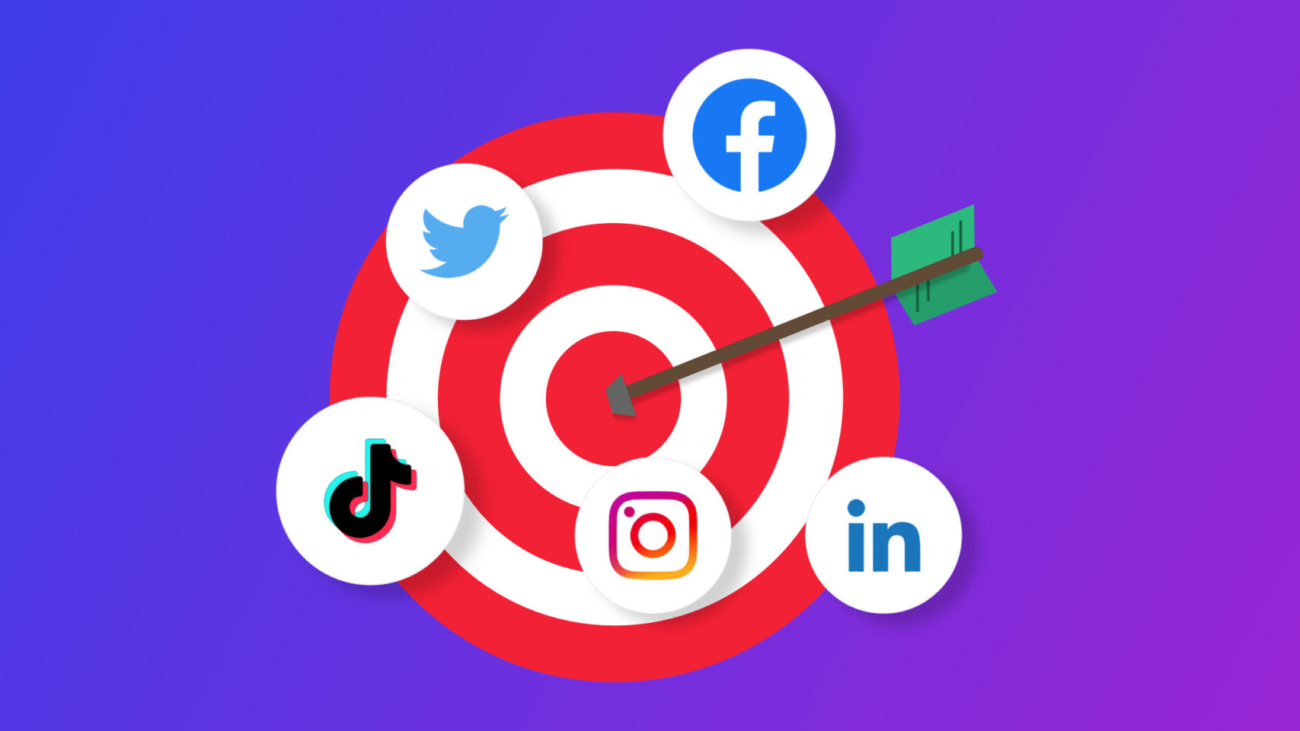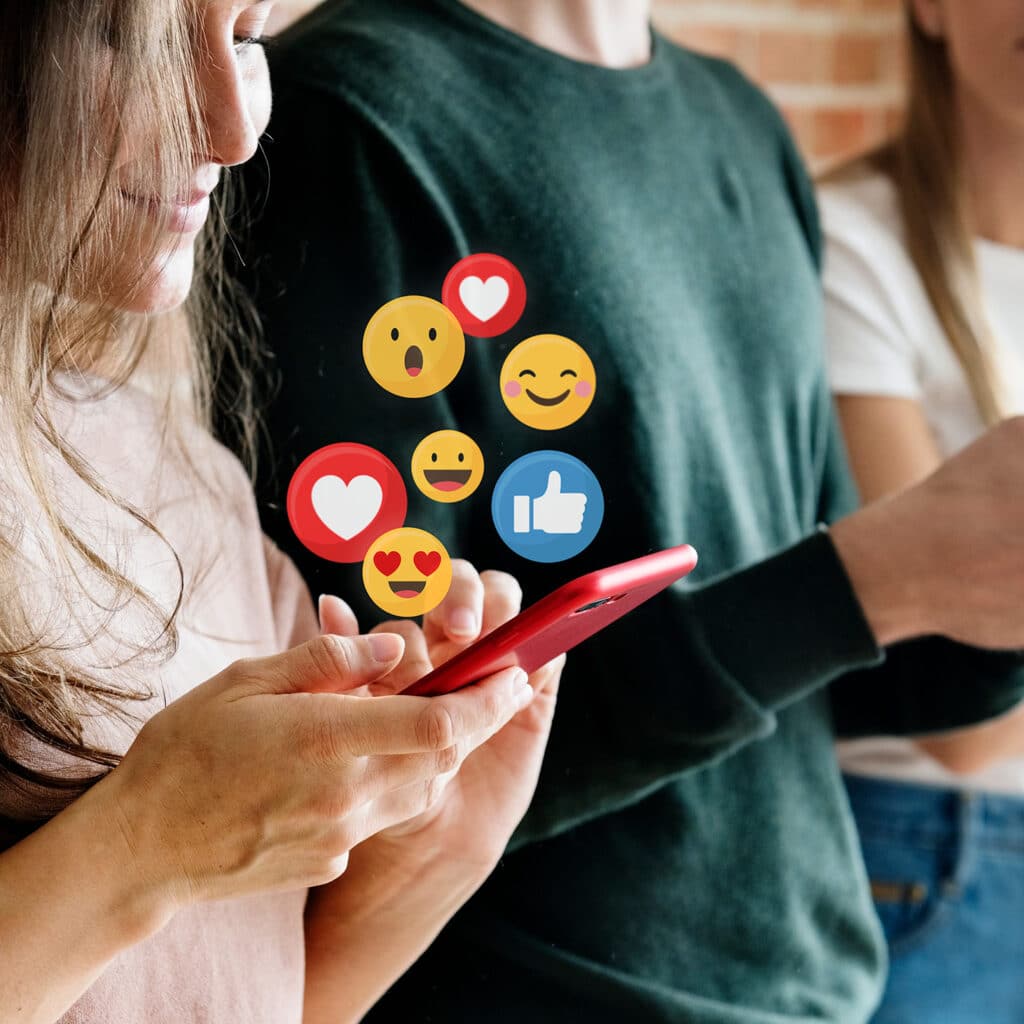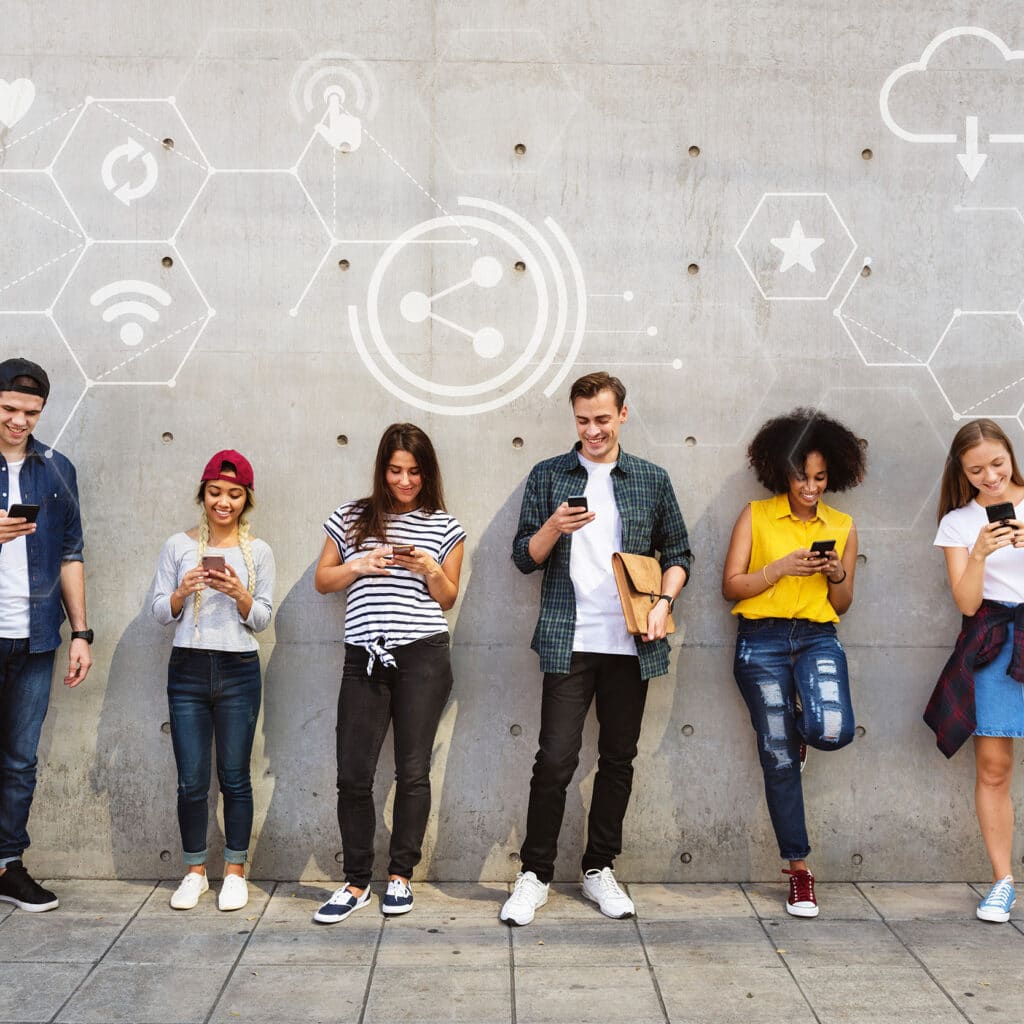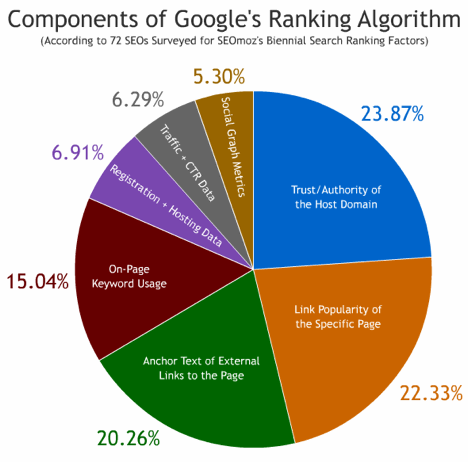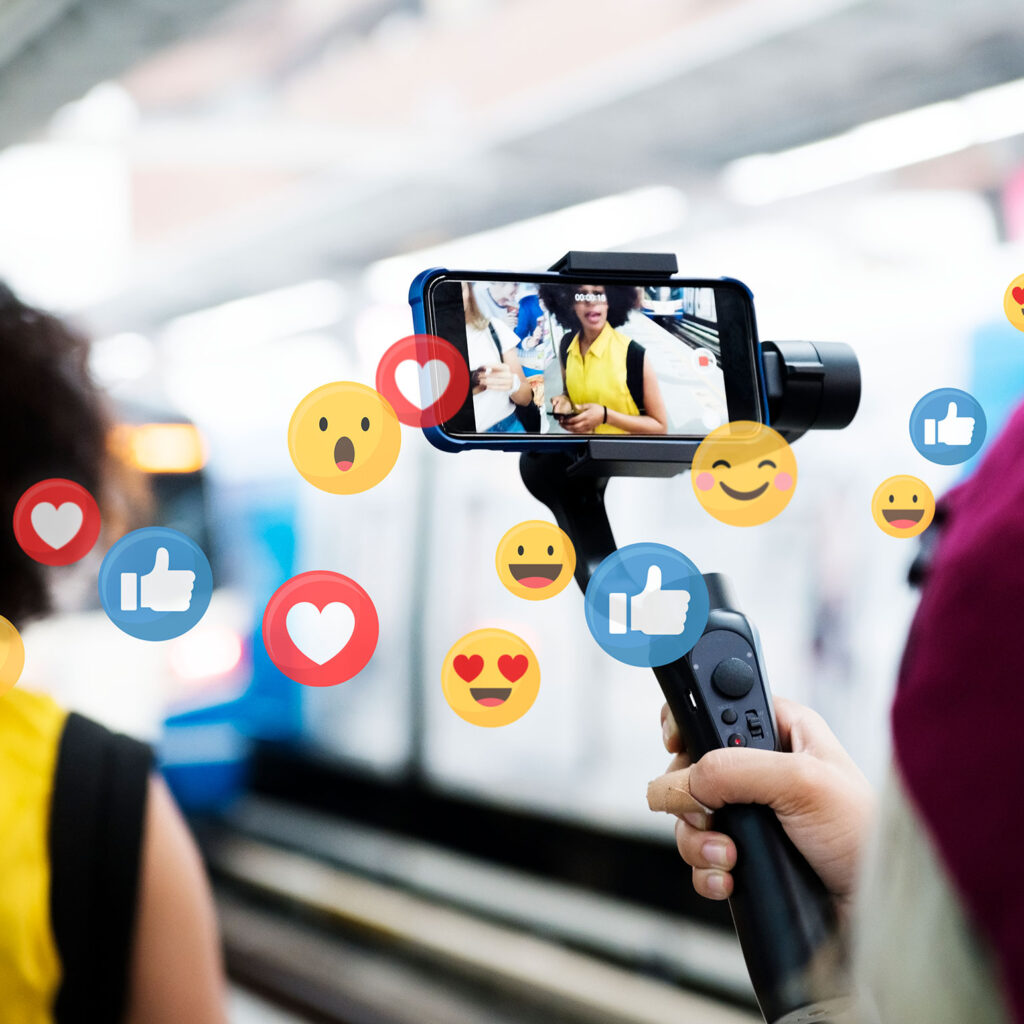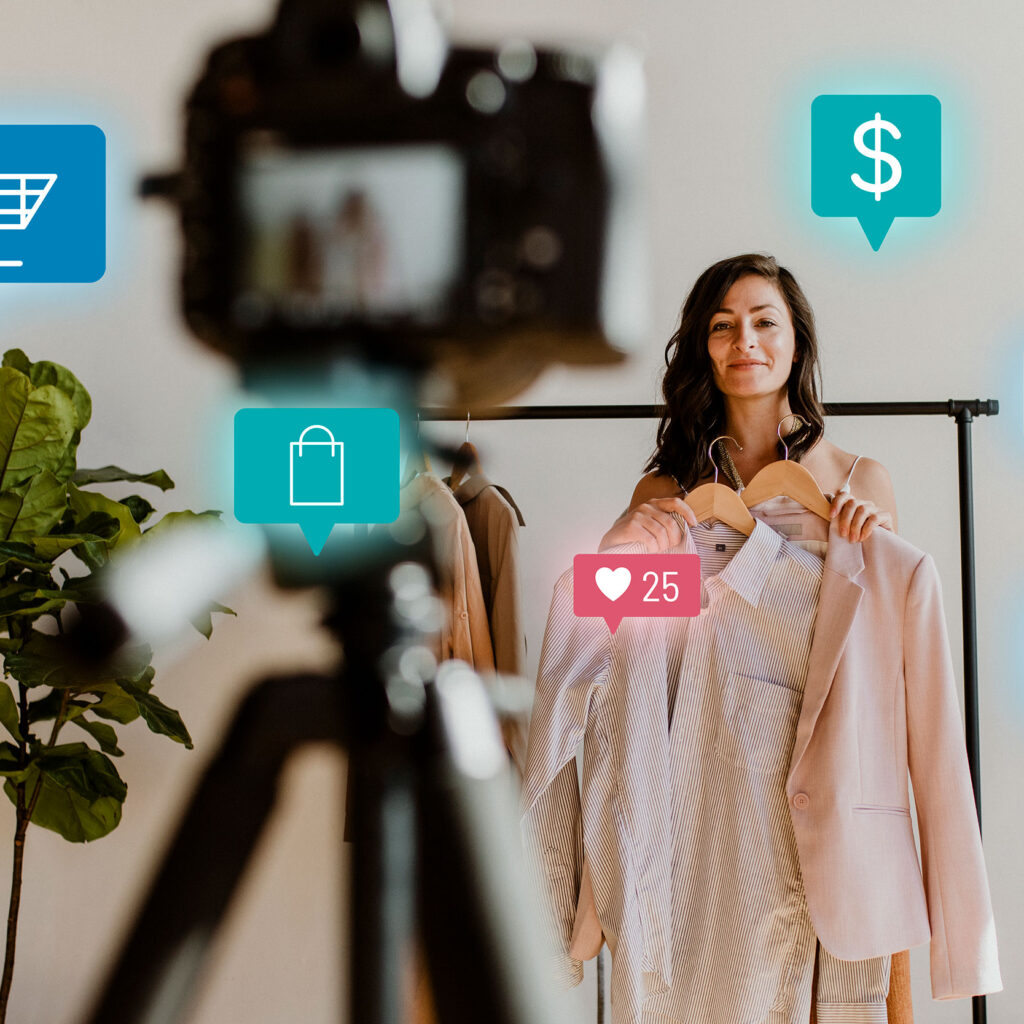Social media marketing is no longer an option for a brand or business to succeed online, it’s a necessity. With so many demographics active across social networks on a global scale, it’s where you want to be to engage, influence and convert.
To see why, just look at these stats from Datareportal’s Global Social Media Statistics:
- There are over 5 billion active social media users—that’s 62% of the world’s population
- The average time spent every day on social media is 2 hours and 20 minutes
- YouTube has the greatest number of active users, followed by WhatsApp and Facebook
- People use an average number of 6.7 platforms each month
These statistics just show the important role that social media has in people’s lives. But it’s not enough for you to just be active on social channels, you need to know how to talk to and serve your audience, share information that informs and excites them, boost brand awareness, and generate leads.
In this blog, we’ll break down the most important elements of social media marketing.
- What is a social media strategy?
- What are the benefits of having a social media strategy?
- What are the 8 steps in building a social media strategy?
- Great examples of a social media strategy (B2B, B2C and non-profit)
What is a social media strategy?
Put simply, a social media strategy is a comprehensive plan that outlines your social media goals, the tactics used to achieve them and metrics tracked to measure performance.
It should help drive brand awareness and engagement across social media channels for your target audience/s, generate leads and help cultivate customer relationships.
What are the benefits of having a social media strategy?
You may have run a successful social media campaign or got great engagement on your posted content. That one-off success is achievable.
However, the difficult part of social media marketing is consistency. Do you understand why that campaign or post succeeded? Can you replicate it easily?
It may be daunting to think about creating a social media strategy, but it will provide your business with many tangible benefits.
- A direction for all your social media activities
- Improve brand awareness
- Offer social customer service and support
- Enhance targeting across audiences and platforms (e.g. your Facebook audience will be very different to your TikTok one)
- Direct and increase website traffic
- Personalize content
- Generate better quality leads
- Create social media influencer opportunities
- Offer social commerce and shoppable posts
- Gather data you can analyze and measure
- Promote your unique content that could go viral (remember that McDonald’s Raise Your Arches Campaign with the eyebrows?)

Join for FREE to access this video
“Social media is a different way of brands engaging with and communicating with their audience and customers. It’s different from every other media because it’s got three unique characteristics: it’s brave, it’s fresh, and it’s hyper-creative,” says Julie Atherton, Digital Strategist and Founder of Small Wonder, the social media transformation advisory and marketing consultancy on the DMI podcast.
There are huge benefits to social media, so creating a strategy will serve to achieve your business goals and drive customer engagement.
If you’re looking for agency support in the areas of SEO, content marketing and paid media, get in touch with Neil Patel Digital
What are the steps in building a successful social media strategy?
Now that you understand the basics of a social media strategy, let’s get to the specific steps you need to take to create one.
We’ll also highlight where to integrate your content strategy and engagement strategy into your overall social media activities to ensure all bases are covered.
Here are 7 steps to creating a successful social media strategy.
1) Set goals for your business
It’s worth spending time on this stage as understanding and defining your social media goals will determine the rest of your strategy.
Think about what your business wants to achieve from social media and understand that marketing and business goals are different. Is it greater brand awareness in the marketplace, to learn more about your audience, expand your following or generate more leads?
You may want to achieve all these goals, but it’s crucial to note each one of them as they will involve different content and tactics on social media.
When you set your goals, define your Key Performance Indicators (KPIs) to understand which social media metrics are important. Research from Sprout Social shows the key metrics that marketers monitor on social media.
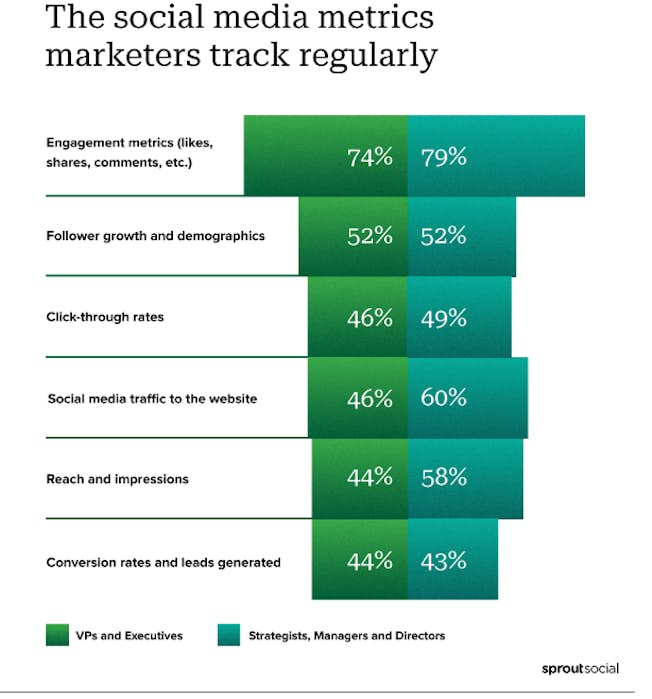
To be successful on social media, set metrics for each channel you use. For example:
- Facebook – reach, engagement and impressions
- Instagram – interactions, Profile visits and Stories discovery
- X – follower count, shares and link clicks may reveal insights.
Beyond basic metrics you can dig deeper and track audience growth rate, amplification rate (the rate users share your content) or virality rate (one that may matter for TikTok).
There are many metrics you can use to track success, so narrow them down to what matters to your business.
2) Research your audience
To create personalized messaging and content, you need to understand who your audience is and what they want.
The ultimate goal is to have customers talk about your brand or product/service in a positive way that influences others (i.e. word of mouth marketing).
The best way to achieve that is to conduct market research through:
- Online surveys
- Interviews with customers
- Setting up a focus group
- Polls on platforms like X, LinkedIn or Threads
- Ask for opinions and feedback through apps (e.g. WhatsApp)
Another way to find out more about your customers and community is to do social listening. Many tools can help you do this across social networks including BuzzSumo, SparkToro or Followerwonk.
Both of these methods will help you create buyer personas which combine your buyer profile and buyer insights to create a picture of your ideal customer. You can have more than one persona to capture the different insights, demographics and pain points.
“The marketing and positioning process, brand strategy, content generation and thoughtfulness has to come from a human being who cares about what other people think of them and their product and can put themselves in the shoes of their customers,” said Rand Fishkin on a recent DMI podcast. “The thing that will make you (as a marketer) great at customer empathy is also going to make you great at brand marketing and positioning and content strategy.”
3) Research your competitors
Competitive analysis is a crucial part of your social marketing strategy. It helps you understand what your competitors are doing in the social space.
The types of things you can get insights on are:
- Social platforms used (which one and how many)
- Messaging – tone and voice
- Target audience by platform
- Branding (how do they use their brand or style guide?)
- Content and the formats used
- Campaign types (company news, polls, promoting gated content, etc.)
- Frequency of social posts
- Interactions with customers
- Use of influencers
- Option for social commerce
When you understand how your competitors engage with customers and the success of that engagement you can either emulate it or take another direction to capture customers’ attention.
4) Choose your social platforms
The question isn’t whether you should be active on social media, it’s how to choose the best channels for your business.
Don’t make the mistake of being active on all of them for the sake of it, some will not suit your business or content. So how do you narrow down your choices and optimize content for every social network?
Facebook: As one of the biggest social media platforms and the oldest, Facebook offers a targeted way to engage with prospects and customers. Many content types do well on this platform and Facebook Live offers you a way to connect with customers through video.
Here’s a great example of a GIF from Oreo that personifies the humor the brand uses to connect with customers.

Check out our simple guide to setting up a Facebook Business page.
Instagram: The perfect visual platform, Instagram continues to be a hit amongst younger audiences and has seen huge growth over the past few years. It’s a great platform to showcase products and connect with influencers to grow your customer base. Plus, with in-app shopping through shoppable posts, customers can purchase on the platform.
This Instagram post promotes tennis player Naomi Osaka’s new collection with Nike. When you click on the image you can get to Naomi’s Instagram page and the page for Nike Women while you can shop the link in the bio.

LinkedIn: LinkedIn is the place to be for marketing B2B businesses and provides opportunities for B2C too. Content that works well on this platform are blogs, whitepapers, eBooks, and industry-related content. Video and audio content have also become popular on this platform so make sure you’re using those content types to inform and engage.
This video from Google shows the development of its AI platform, Gemini and thanks everyone involved in making it happen. It also uses the opportunity to promote new AI role coming up.

X: X has changed over the past two years but its function remains the same; a real-time platform that favors timely and relevant content. It can be a great customer service channel for brands as it allows quick replies and its hashtags help discover new and trending content.
SkyUK has a dedicated channel on X – SkyHelpTeam – to deal with customer queries and urge people to get in touch along with providing information on queries they have received on its service.

Find out how to use X effectively for your business with our in-depth blog.
TikTok: As one of the fastest-growing social media channels, TikTok is a great place for video content. Known for its short-form and quirky videos, it’s developing rapidly as a platform and can be used effectively for marketing. The platform also now promotes longer videos of 60 minutes to compete with YouTube.
For user-generated content, you can’t beat TikTok and it’s a great place for influencer collaborations. This new partnership with McKenna Crisp sees him join other influencers as a GymShark athlete.
Join for FREE to access this video
Check out this influencer tracker tool if you’re looking to keep track of potential partnerships.
Pinterest: Pinterest is all about social discovery. It’s a place people come to get inspired by images and videos. The millions of pins it showcases cover everything from home decor to recipes and it’s great for content curation – like a social mood board.
Lifestyle brand and design company, Oh Joy! has a number of Boards on Pinterest but her most popular is the ‘Recipe’ board with nearly 2.7k pins.

You can find out more about how to use Pinterest for your business.
YouTube: Someone somewhere right now is watching a YouTube video. In 2024 it’s taken the top spot from Facebook as the most popular social platform based on users! YouTube provides a way to connect with customers in a way that provides information but can also offer entertainment.
Here’s a tips video from GoPro that shows people how to use the Quik desktop app to upload, transfer and edit videos.

Join for FREE to access this video
If you’re a brand that creates a lot of videos, particularly how-to or tutorials, this could be the platform for you. It’s also a great discovery platform with many people using it as a search engine, so think about SEO for YouTube.
Threads: Threads is Meta’s microblogging platform positioned as an alternative to X. The aim of the platform is to allow users to share text updates and join public conversation.
Features on Threads are saved posts, saved drafts, adding images to posts, adding trends to the search page and a ‘For You’ feed. The platform continues to evolve so it’s one to watch.
Netflix uses Threads to promote its content – new and old – to its 5.6 million followers.


5) Plan your content
Now that you’ve done your research and decided on the right social media platforms, it’s time to think about your content and approach.
With the increasing popularity of short-form video content, people no longer have the patience to wade through long pieces of content to find the nuggets of information they’re looking for.
Here are some factors to bear in mind when using content to develop your brand according to Mark Pollard, Author and CEO of Sweathead in a recent DMI webinar on social media strategy.
- Most people don’t buy often: You don’t need to target your heavy purchasers, who may make up less than 5% of the potential buyers. Target your light purchases, who may make you 20%.
- Brand takes time and money to develop: Brand building can lead to long-term sales growth, but that takes a lot of time and money.
- Too many messages dilute your brand: The more messages you have, the less memorable any of the messages will be.
- Emotions help to build brands: When you trigger emotions, you help to build strong brand memories. Create those emotional brand associations.
- Fame makes brands: When you create strong emotional connections, you can help make the brand more famous.
- Brand assets stay in the memory: Brand assets – such as logos, characters, color schemes, slogans, and fonts – can deepen the emotional connection with people.
- Natural content beats staged content: Natural content – such as product shots, talking heads, or humans naturally interacting with products – is usually more effective and relatable than staged content with celebrities.
- Celebrities are not always effective: Celebrities and influencers often underperform. If working with celebrities, make sure they’re promoting the brand, and not just themselves.
- Creative content drives profits: Creative and innovative content drives profitability.
- Most people ignore more ads: 80% of ads fail to reach the attention threshold (2.5 seconds).
We share awe-inspiring content: We tend to share content that reveals something awe-inspiring about ourselves or the world around us. It helps to connect us to each other.
When you go to plan your content follow these simple steps:
- Create a tone for your pages. Are you formal or informal? Do you use humor or is your business more serious? Each platform has its own personality too, so do you want to speak differently on each and showcase your brand’s personality?
- Create content themes or content buckets. Look at what your USP is and see what content themes or buckets you can create. For example, if you’re a travel resort or hotel, you could create a content bucket around wellness showcasing your spa and healthy recipes. Another content bucket could be about your location, what makes that place unique and interesting, is it the wildlife, scenery etc.? If you need help with content creation, there are some great social media tools out there.
- Create a content calendar. It’s key to post regularly on social networks and a calendar can put some order to your posting especially if you’re posting on multiple channels. Here’s a content calendar template to use to keep track of your content across channels.
- Schedule your content. It can be difficult to keep up with the pace of social media and if you post regularly, keeping to a schedule is important for consistency.
To help you get started, check out our social media style guide.
What makes a good social media post?
It’s easy to create posts, but taking the time to create good content will be worth the effort in terms of reach and engagement. So, how do you ensure you create good posts?
- Monitor content performance – it’s important to analyze your content to see what does and doesn’t work
- Optimize content – Tweak your content to optimize its performance and ensure you’re using the right message, content and tone for each platform.
- Think about new angles for content – Would humor work or what about video testimonials from previous customers? Don’t stick to the same message and format all the time, try new things.
- A/B test content – Try different versions of content on platforms to see what works better. Is there a keyword that resonates better, or do different colors get better engagement? Here’s an A/B testing toolkit and video to help you.
- Track your KPIs – Refer back to your KPIs to make sure you’re on track with your content.
There’s no magic solution to creating good content. It’s about putting content out there, analyzing it, optimizing it, and trying something new.
6) Manage and engage your community
The great thing about social media is that it builds connections which can become communities. Communities are wonderful things as they build engagement and drive brand awareness.
An active community is an amazing thing as it can create brand advocates and draw in new customers. But a community needs nurturing, so you need to take time to build it and then grow it.
A key element to managing and engaging a social media community is to be responsive. If a customer has a query or comment, get back quickly and be helpful.
As social media becomes more popular as a way for customers to reach out, inevitably there will be complaints. But don’t panic, negative reviews show that people are engaging with your content and it makes your channel look more authentic.
So look for any creative opportunity in the negative review. Perhaps you could engage in a debate about the comment, or challenge it in a thought-provoking way. Or you could use humor to diffuse the negativity. For example, you could create a comedy routine where you read out the negative reviews!
“Be mindful of how serious the complaint is, however. If it seems like you’re making fun of a serious complaint, that could backfire,” says Mark Pollard. “In some cases, empathy is the best response.”
7) Grow your following
There’s no point in having a social media channel if you don’t get new followers. Growing your audience is an important part of any social media strategy and you need to use tactics to achieve it.
There are two ways to grow your audience: organically or through paid advertising.
For organic traffic, content is crucial as it will help to attract users and drive engagement especially since organic reach is declining across social platforms.
For example, as of July 2023, the average engagement rate of an organic Facebook post ranges from 2.58% down to just 1.52% according to Hootsuite. A good way to drive engagement is to run a competition or offer behind-the-scenes footage of what it’s like to work for your brand.
Remember you can always cross-promote especially since people use multiple platforms daily. For example, you could post a video on Facebook, Instagram and Threads through Meta’s platform. The aim is to promote a post that sends people across your channels to see the impact.
Using paid advertising you can set a daily budget and target a group of users. Use a paid media campaign tracker so you can keep on top of all the campaigns.
You can also work with influencers to promote one of your products. Micro-influencers can be useful especially at a local level if you’re a restaurant or bar trying to get people in the door. You can also use digital PR by putting out a press release or getting an article in a relevant publication to drive people to your social channels.
8) Work the social media algorithms
Your social media strategy won’t work if you don’t understand how the algorithms work, no matter how many subscribers and followers you have.
Here are some top tips from Mark Pollard for getting the algorithms to work in your favor.
- Use bold hooks: Jolt your audience with a (positive or negative) hook. Add an element of novelty, urgency, or scarcity.
- Have characters that do stuff: When characters are doing things, it piques interest and makes the content more engaging and relatable.
- Use raw production: Raw content can often feel more authentic than carefully polished content.
- Aim for quantity to reach quality: Produce content quickly and build a library. See which content works best and lean into that. Reuse and repurpose what performs well.
- Give it some energy: Go for the extremes. Create content that’s really loud or really quiet, for example.
- Include the products: Make it clear what you’re selling.
- Add some WTF: Grab people’s attention with unusual or unexpected content. Aim for visual, verbal, or audio surprises, or a combination of all three.
Incorporate subtle branding: Be subtle about branding, but do include it. It could be on a cap, a mug, a t-shirt, a wall, and so on. Aim to get people to associate your content with your brand, without turning them off.
“Well-produced content is going to look like an ad and we’re programmed to not want to be advertised to.”
Mark Pollard
Visit us on Social: Border Digital Media El Paso Texas. We are a self-driven Creative agency in the border of El Paso/Ciudad Juarez, leveraging innovative, brand and marketplace solutions to connect your brand consumers and audiences. We offer Social Media Strategies, Corporate Photography, Graphic Design, Video Production in El Paso Texas. Border Digital Media is the Best Advertising agency in El Paso, Texas.


